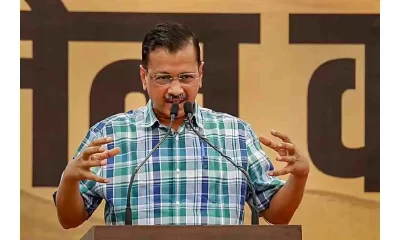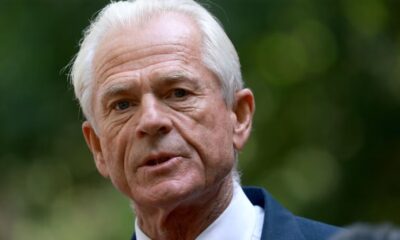[vc_row][vc_column][vc_column_text]Trump has reached out to Modi, and the chemistry seems to be crackling between the two leaders, but for the Indian PM, nurturing the new friendship will prove to be a balancing act
By Sujit Bhar
Donald J Trump is not just the 45th President of the United States; he is a billionaire in his own right, a reality TV host and a successful one at that, and he has a family of ardent followers who believe a severely protectionist America would actually be a good thing.
What Trump probably lacks is a set of “friends” across the world. International geopolitics isn’t a reality television show, though often it looks like one. It is a hard world of deals and more deals, each defining a nation’s apparent effort at positioning itself on the world’s stage. Friends need to back each other up – it is a Bigg Boss thing that Trump should understand – and Indian Prime Minister Narendra Modi fits firmly in that slot.
So when Trump called Modi ahead of calling Moscow or Beijing or Tokyo, read less of summit politics into it. It’s about a greenhorn president, one who has suddenly become the most powerful politician of the world, seeking an early friend who he can be officially comfortable with. And that friend should also be non-controversial. That’s it.
The problem is whether Modi would be as comfortable with Trump as he was with Barack Obama. Modi has to bring up the China-Pakistan issue, which is a favourite with Trump, but he also has to bring up the H1B visa issue, which, for Trump is anathema. The game of balancing policies will have to start all over again.
Modi has said that he has invited Trump to India – the Trump name has already landed, with a huge luxury real estate project coming up in Mumbai – (and vice-versa) and while British Prime Minister Theresa May will be the first top international leader to visit Washington (she has been berated by the UK media for this move), whether Modi’s future visit to the US swill be as spectacular as before will have to be seen.
Trump has made the right noises for India to feel comfortable in a growing relationship. And when Modi was among the first leaders to phone Trump and congratulate him on his victory, it was probably a move towards strengthening this relationship. It was a hint that India had taken from Trump’s campaign talk, in which he had said: “Under the Trump administration, we are going to become even better friends, in fact I would take the term better out and we would be best friends.”
Trump had said: “I love India, I love Hindu.”
Not that this had anything to do with the ruling party’s Hinduvta drive; if anything it was a generic term that Trump possibly used somewhat unknowingly. That is one part of the new president that Modi has to be careful in assessing.
The big issue is not just a friendship for friendship’s sake. What can India get out of this friendship? There could be more defence deals, and there could yet be a shadow on the Dassault Rafale deal. And if the Trump-Putin friendship holds, India’s joint venture with Russia in developing fifth generation stealth fighter project – known in India as the Perspective Multi-role Fighter (PMF) – could also go ahead smoothly.
The small problem is that Trump has remained as unpredictable in office as he was on campaign. International relations are bound and sealed with the understanding of a level of maturity and stability in dealings. Whether Modi and Trump would be able to reach a proper understanding in the wake of Trump’s strong protectionist attitude, is a delicate matter.
These, therefore, are early times, and early signs might not really be indicative of what the future holds. There is need for caution in dealing with Trump. A huge number of Indian technocrats would be looking forward to it. So would top Indian IT companies, who are already in a hire-local drive in the US.
The bigger bounty would be if Trump actually manages to put hurdles in front of China’s access to the US market. Why he said yes to a complicated deal with Alibaba chief Jack Ma remains an issue mired in complication. That Chinese connection was virtually sealed with “smart” comments from both. And that was even before Trump had taken oath.
If US-China trade relations do hit a roadblock, India must be prepared to take advantage of that. The only problems are India’s woeful infrastructure and absurd red tape.
There will have to be new tweaks in place for India to address a person like Trump; Modi’s personal equation notwithstanding. That will be a tough ‘mitroon’ to handle.[/vc_column_text][/vc_column][/vc_row]


 Latest world news23 hours ago
Latest world news23 hours ago
 Latest world news23 hours ago
Latest world news23 hours ago
 Latest world news22 hours ago
Latest world news22 hours ago
 India News22 hours ago
India News22 hours ago
 India News14 hours ago
India News14 hours ago
 Latest world news13 hours ago
Latest world news13 hours ago











